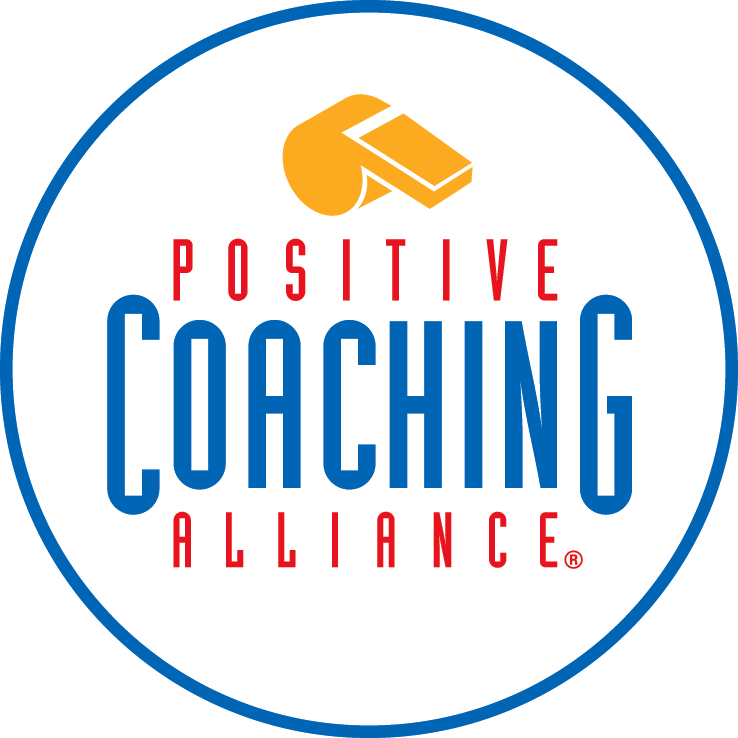
Basketball on the Edge – New Year’s Resolutions for Youth Basketball
As we head into 2016 here are some New Year’s Resolutions for youth basketball parents, players, and coaches.
Resolutions for Youth Basketball Parents
• Tell your young player that you love to watch them play. – Don’t critique or criticize them right after the game. Let t your child know that you love them regardless of how a particular game turned out.
• Understand the importance and value of life lessons. – Make sure that basketball is a vehicle to help young players understand the value of teamwork, overcoming adversity, dealing with pressure, and striving to reach a goal. If all that happens during the season is your child becomes a better player then you’ve missed a great opportunity.
• Sit in the bleachers and watch the game with other positive parents. – Avoid those parents that want to complain about the coach, other players, or the referees. Sit with people who are interested in being supportive. Maybe you’ll even impact the complainers and help change their behavior!
• Support all the players. – Don’t just cheer for your own child or scream “Shoot it!” every time your kid gets the ball. Root for everybody on the team to do well and be successful. If you want your child to be unselfish, model that type of behavior in the stands.
• Don’t make the car ride home miserable. – Tell your young player “I love watching you play.” and leave it at that. If your child wants to talk about the game let them bring it up. Otherwise, your young player will begin to dread getting in the car with you after the game if all that happens is a steady stream of criticism, analysis, and advice.
• Make sure your child has a life outside of basketball. – As much I love basketball and hate to admit it, your child needs time for other activities. Maintain a healthy balance between time spent on the game and time spent with family, friends, other sports, art ,music, or whatever else your child is into.
• Don’t complain in front of your young player. – If all your child hears is negative comments about the coach, other players on the team, the referees, the other team’s fans or whoever they will listen and begin to emulate the behavior they see. Unless you are trying to raise a whiney excuse making complainer keep your negative comments to yourself.
• Teach and model good nutrition. – Giving kids a good nutritional foundation will serve them well for the rest of their life. Don’t show up to the game with a 32 oz soda if you don’t want them doing it. (and you don’t do you?)
• Help kids develop a love for the game. – Play with them, talk to them about the game, watch big games on tv together. Attend a local high school, college, or even professional game. The more exposure they get the easier it is for the love to develop. Plus it’s just a great way to spend more quality time with your child.
• Remember it’s not about you. – Their basketball experience is theirs and not yours. If they play well, good for them. If they play poorly, it is not a reflection of you as a parent. Don’t push your kid too hard because you never made the varsity team when you were in school. Don’t push your kid too hard because you played D1 basketball and you think your kid should too.
• Seek out programs and coaches doing things the right way. – Don’t be blinded by claims of winning records or mythical championships. Just because an organization makes those claims doesn’t mean they are teaching the game the right way. Look for coaches and programs that look to develop the entire person both on and off the court.
• Don’t base success on wins and losses. – Look beyond the scoreboard and see what’s really happening with your young player’s development as a player and a s person. Just because you’ve won on the scoreboard doesn’t mean you’ve been successful. Conversely, just because you’ve lost on the scoreboard doesn’t mean you haven’t had a successful experience. Wins and losses are a part of the journey not the only destination that matters.
Resolutions for Youth Basketball Players
• Work hard. – Nothing else matters if you aren’t willing to give your best effort on and off the court. You have to have grit and be willing to push through the tough times.
• Make sacrifices. – If you want to be good at anything you have to be willing to make sacrifices. You have to get up early, you have to stay after practice, you have to be in the gym, all while other people are sleeping, heading home, or hanging out. You must be willing to sacrifice some things you enjoy to become a truly great player.
• Be humble. – Don’t tell people what you can do, show them what you can do. Any success you have in the game of basketball or in life will come as a result of the help you received from others along the way. Never forget who helped you get where you are.
• Develop a love for the game. – The more time you spend with the game, the deeper the attraction.
• Bounce back from mistakes. – If you are going to be a good basketball player mistakes are a critical part of your development. You must be willing to try new skills and take on new challenges without fear of failure. We learn best when we push ourselves outside the edge of our comfort zone. Don’t let a mistake keep you from moving forward.
• Learn more about basketball. – Study the game in person, on tv, and by reading. Seek advice from coaches, parents and teammates. Don’t be a know-it-all, be a learn-it-all.
• Practice good sportsmanship. – Be a good sport with your teammates, your opponents, your coaches, and the officials.
• Respect your opponent. – Without someone to play against there wouldn’t be a game. Be thankful you have someone to play and measure yourself against. • Treat officials respectfully, remembering that they have been selected and trained to enforce rules.
• Be a great teammate. – As a true team member you are part of something greater than yourself.
• Represent yourself, your family, your team, your school, your organization and your community with class. – Do this even if others do not.
Resolutions for Youth Basketball Coaches
• Teach meaningful skills that are developmentally appropriate. – Make sure the skills you are teaching and the drills that you use are appropriate for the age and skill level of your players.
• Be a positive role model. – If you want your players to behave in a certain way make sure you hold yourself to the same standard. If you want them to be calm under pressure you must model that behavior. Kids remember much more of what we do than what we say.
• Promote sportsmanship. – Make it one of the core values of your program. Honor the game and all the people who are a part of it.
• Help other coaches. – If you are a veteran coach with lots of experience, reach out to younger coaches and pay it forward, The game is good to those who take care of the game.
• Develop character and leadership. – It is not enough to just teach x’s and o’s and develop basketball skills. As a coach you have a chance to impact kids for a LIFETIME. Don’t waste that opportunity to build better PEOPLE.
• Maximize activity levels during practice. – Don’t waste time on drills where two kids are involved and the rest of the team just stands around watching. There are so many resources available today, there is no excuse for a poorly designed youth basketball practice.
• Don’t play zone defense. – It may help you win more games, but it stunts the growth of your players and the growth of the opposing team’s players. Youth teams don’t have the skills or strength to attack even a poorly played zone defense. If you care about the game, please don’t play a zone defense.
• Don’t favor your own child. – If you are coaching your own child, don’t make them the point guard when they can’t dribble. Don’t run every play so they can shoot. Don’t keep them in the entire game at the expense of other kids. “Daddy” (or “Mommy” ) ball is good for anyone.
• Don’t focus on just winning and losing. – There is more to a successful season then your won/loss record. Help your players and parents understand the other ways that you measure success through building a great team culture.
• Make the game fun. – If it’s not fun, why would any kid want to play? Include competitions and games in your practices. Play fun games of tag that build athleticism and are fun too!
• Help kids develop a love for the game. – As a coach if you can help kids love the game you have accomplished something significant. Nothing makes me sadder than when I hear a parent tell me that their 7 year old doesn’t want to play anymore because of a previous coach.
• Don’t criticize officials. – Coach your team and let the referees do their job. Some of them are good, some of them are bad. :earn to live with it. You are not coaching for an NBA championship. Do you really think being a pain in the neck gets you mare calls? I think not.
• It’s not about you. – Learn to take the blame when you lose and give away the credit when you win. You should be coaching for the kids, not to prove what a great tactician you are.
If we could get everyone involved in youth basketball to keep these resolutions the game would be much better going forward. Thanks for reading “Basketball on the Edge” in 2016. I hope you have found value in the articles that I’ve written and shared. Please pass this post on to others that you feel might benefit from reading and acting on these resolutions. I wish you, your family, and your team a Happy and Successful New Year! Send me your comments, I’d love to hear from you.
Leave us a comment about this post headstartbasketball@usa.net


